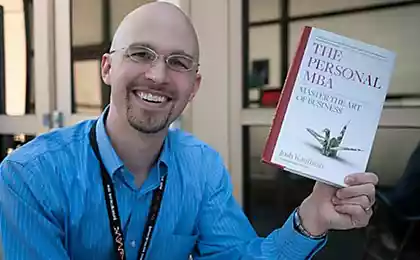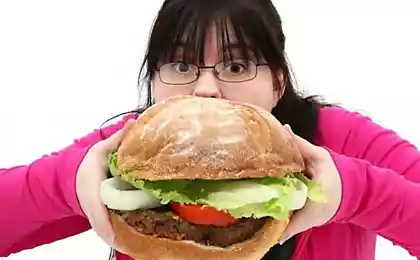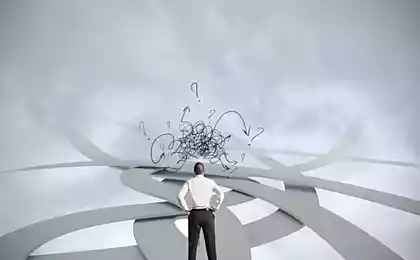654
Cheerfully start but rarely finish. The advice of a psychologist
How not to throw good initiatives on the way.
Long wanted to learn to play the guitar, dance, learn a new language? Already made the first step — signed up for courses, but, unfortunately, most likely you throw it on the middle of the road.
In childhood, when we learn or was interested, there was another factor — parents who drove us to music schools, circles and clubs. Maybe in order to learn something, you need to have some sort of forced incentive? Or the problem is lack of motivation — you just need something very much and want to then nothing can stop on the way? Maybe the question that we really don't like it, and we're just under the influence of fashion, social stereotypes, or some other motive impulsive grasping at something and impulsively throw.
Let's try to understand this phenomenon from a scientific point of view and make conclusions.

Neuropsychologists studying the processes that take place in the brain during learning, conducted experiments with monkeys. The monkey gave a special tool with which she could get food from the feeder and was monitored by fMRI (functional magnetic resonance imaging) that in the brain there is activity.
During the experiment it turned out that the monkey need a place 700 reps, 40 hours in order that its actions be free and confident, i.e., the skill was fixed. During this time in a monkey's brain has formed new neural structures that actively respond during the execution of this action.
We can say that to consolidate some simple automatic skill required approximately 700 iterations and 40 hours of training.
On humans, such experiments have not been conducted, but I think that it is possible to extrapolate these data to people. Someone more, someone less, but in any case, in order to learn something new, it takes time.
Psychologists say that the average person takes about 10,000 hours to master any complex skill, such as learning a new language, learn to draw, etc. So you can make the first conclusion — in order to reach the end in their new endeavors, you need to have stamina and patience depending on the complexity of from 40 to 10,000 hours of training.
How does a natural mechanism of learning and achievement goals?
Back to experience on animals. The scientists placed mice in a cage, and a trough separated by a small corridor, the floor of which is painfully electrocuted. The mouse tried to run on this corridor received an electric shock and came back. In the end, they sat angry and hungry when close to them so delicious smell of food.
Other mice artificially raised the level of the neurotransmitter dopamine, and they didn't stop mid-way and come to the feeders. Dopamine directly increases the pleasure of eating, it does not reduce the pain threshold, mice were literally burned paws.
Almost everything happened just like in the saying — mice were crying, injected, but continued to guzzle a cactus.
Dopamine regulates delayed gratification, sometimes you say — the hormone of error compensation. Have you seen the video, as the hunt tigers or lions, Yes, maybe just for my cat watched? The predator loses interest in the goal when misses or does not reach the goal. The cat may be a very long time to sit and wait for the right moment, without losing motivation and concentration. This is how a natural mechanism to achieve the goal. Every disappointment, every failure, is thrown an extra dose of dopamine, and the predator only increases concentration and motivation.
Exactly this mechanism leads to such undesirable side effects — addiction. Drug that causes the highly addictive, cocaine strongly affects the reuptake of dopamine, i.e., more of the neurotransmitter remains in the synapses, which extremely enhances the desire to reward another dose.
Nicotine and alcohol cause different feelings, but addiction become exactly the same reason. The longer you smoked, the higher the level of dopamine, the more you want to smoke — to reach the goal and get a reward — to raise the level of acetylcholine, which increases concentration and relaxes muscles.
The alcohol effect is excellent: it relaxes, promotes social sensitivity, disrupts the coordination is more sedative in nature, but also raises the level of dopamine, which reinforces the expectation of a new dose.
Dopamine is regulated not only by psychoactive substances. Try to force yourself to eat less? The more you struggle with the diet, the stronger the desire to eat. The pleasure of eating does not increase, but the expectation of food can become very strong, and should just relax a bit, for example, to sleep, cognitive function will be weakened a little, we will feel a strong urge of hunger and not realizing, you can go to catch something in the fridge the night. So for "night of door" system also meets the expectation of reward.
So why is that the dopamine system is able to raise us up in the night and forced to eat, but can not help us to learn the language?
Imagine a small child that something very wanted, but my parents are against it? The more he deny, the louder will be hysterical. Begins a self-reinforcing cycle, in the end, the mother yells at the voice, and the child lying on the floor and bursts into tears, while shouting themselves hoarse. The only way to break this vicious cycle, "remove task" is to divert attention, to distract.
And with us, we really want to learn to play the guitar, signed up for courses, bought a guitar, and then friends were invited to the club to dance and ... wanted to learn to dance. Stimuli around us so much, so many stimuli, that we can endlessly switch from one to another as long as we all don't get bored, and our interests are not narrowed to look at funny videos and funny cat pictures.
Quite often our initial urge to learn something new actually is not ours, came from inside and was the result of some stereotypes, our rational reasoning and other artificial conclusions. We are starting some business, but then find that there is no internal reward is not there, and parents or teachers who would be forced to, either. In this case, the dopamine system will begin to work with the opposite sign. The stronger we are to force yourself to do something that gives us true inner pleasure, the more will want to quit, because the real payoff in this case is getting rid of these voluntary "duties".
Also interesting: a Simple method of self-discovery — practical exercise
10 great writing practices for self-discovery and not only
Man, unlike animals, have an added mechanism, the imagination. Before jumping into a new hobby, you can try to imagine yourself in the final, drawing, speaking a new language and try to understand how it will be nice to you.
It is pleasant, associated with this internal positive emotions? It may be a satisfaction, what worked, was able and engaging new skill, etc.
After playing with my imagination, not only will we be able to understand, as we are really interested in rationally useful, namely irrational pleasure, but also activate the dopamine system, which will help us to reach the much desired final.published
Author: Aryeh Gotsdanker
P. S. And remember, just changing your mind — together we change the world! ©
Join us in Facebook , Vkontakte, Odnoklassniki
Source: orgdev.ru/%D0%B1%D0%BE%D0%B4%D1%80%D0%BE-%D0%BD%D0%B0%D1%87%D0%B8%D0%BD%D0%B0%D0%B5%D0%BC-%D0%B4%D0%B0-%D1%80%D0%B5%D0%B4%D0%BA%D0%BE-%D0%BA%D0%BE%D0%BD%D1%87%D0%B0%D0%B5%D0%BC-8f7d19bcf8ce#.6ed1f65jz
Long wanted to learn to play the guitar, dance, learn a new language? Already made the first step — signed up for courses, but, unfortunately, most likely you throw it on the middle of the road.
In childhood, when we learn or was interested, there was another factor — parents who drove us to music schools, circles and clubs. Maybe in order to learn something, you need to have some sort of forced incentive? Or the problem is lack of motivation — you just need something very much and want to then nothing can stop on the way? Maybe the question that we really don't like it, and we're just under the influence of fashion, social stereotypes, or some other motive impulsive grasping at something and impulsively throw.
Let's try to understand this phenomenon from a scientific point of view and make conclusions.

Neuropsychologists studying the processes that take place in the brain during learning, conducted experiments with monkeys. The monkey gave a special tool with which she could get food from the feeder and was monitored by fMRI (functional magnetic resonance imaging) that in the brain there is activity.
During the experiment it turned out that the monkey need a place 700 reps, 40 hours in order that its actions be free and confident, i.e., the skill was fixed. During this time in a monkey's brain has formed new neural structures that actively respond during the execution of this action.
We can say that to consolidate some simple automatic skill required approximately 700 iterations and 40 hours of training.
On humans, such experiments have not been conducted, but I think that it is possible to extrapolate these data to people. Someone more, someone less, but in any case, in order to learn something new, it takes time.
Psychologists say that the average person takes about 10,000 hours to master any complex skill, such as learning a new language, learn to draw, etc. So you can make the first conclusion — in order to reach the end in their new endeavors, you need to have stamina and patience depending on the complexity of from 40 to 10,000 hours of training.
How does a natural mechanism of learning and achievement goals?
Back to experience on animals. The scientists placed mice in a cage, and a trough separated by a small corridor, the floor of which is painfully electrocuted. The mouse tried to run on this corridor received an electric shock and came back. In the end, they sat angry and hungry when close to them so delicious smell of food.
Other mice artificially raised the level of the neurotransmitter dopamine, and they didn't stop mid-way and come to the feeders. Dopamine directly increases the pleasure of eating, it does not reduce the pain threshold, mice were literally burned paws.
Almost everything happened just like in the saying — mice were crying, injected, but continued to guzzle a cactus.
Dopamine regulates delayed gratification, sometimes you say — the hormone of error compensation. Have you seen the video, as the hunt tigers or lions, Yes, maybe just for my cat watched? The predator loses interest in the goal when misses or does not reach the goal. The cat may be a very long time to sit and wait for the right moment, without losing motivation and concentration. This is how a natural mechanism to achieve the goal. Every disappointment, every failure, is thrown an extra dose of dopamine, and the predator only increases concentration and motivation.
Exactly this mechanism leads to such undesirable side effects — addiction. Drug that causes the highly addictive, cocaine strongly affects the reuptake of dopamine, i.e., more of the neurotransmitter remains in the synapses, which extremely enhances the desire to reward another dose.
Nicotine and alcohol cause different feelings, but addiction become exactly the same reason. The longer you smoked, the higher the level of dopamine, the more you want to smoke — to reach the goal and get a reward — to raise the level of acetylcholine, which increases concentration and relaxes muscles.
The alcohol effect is excellent: it relaxes, promotes social sensitivity, disrupts the coordination is more sedative in nature, but also raises the level of dopamine, which reinforces the expectation of a new dose.
Dopamine is regulated not only by psychoactive substances. Try to force yourself to eat less? The more you struggle with the diet, the stronger the desire to eat. The pleasure of eating does not increase, but the expectation of food can become very strong, and should just relax a bit, for example, to sleep, cognitive function will be weakened a little, we will feel a strong urge of hunger and not realizing, you can go to catch something in the fridge the night. So for "night of door" system also meets the expectation of reward.
So why is that the dopamine system is able to raise us up in the night and forced to eat, but can not help us to learn the language?
Imagine a small child that something very wanted, but my parents are against it? The more he deny, the louder will be hysterical. Begins a self-reinforcing cycle, in the end, the mother yells at the voice, and the child lying on the floor and bursts into tears, while shouting themselves hoarse. The only way to break this vicious cycle, "remove task" is to divert attention, to distract.
And with us, we really want to learn to play the guitar, signed up for courses, bought a guitar, and then friends were invited to the club to dance and ... wanted to learn to dance. Stimuli around us so much, so many stimuli, that we can endlessly switch from one to another as long as we all don't get bored, and our interests are not narrowed to look at funny videos and funny cat pictures.
Quite often our initial urge to learn something new actually is not ours, came from inside and was the result of some stereotypes, our rational reasoning and other artificial conclusions. We are starting some business, but then find that there is no internal reward is not there, and parents or teachers who would be forced to, either. In this case, the dopamine system will begin to work with the opposite sign. The stronger we are to force yourself to do something that gives us true inner pleasure, the more will want to quit, because the real payoff in this case is getting rid of these voluntary "duties".
Also interesting: a Simple method of self-discovery — practical exercise
10 great writing practices for self-discovery and not only
Man, unlike animals, have an added mechanism, the imagination. Before jumping into a new hobby, you can try to imagine yourself in the final, drawing, speaking a new language and try to understand how it will be nice to you.
It is pleasant, associated with this internal positive emotions? It may be a satisfaction, what worked, was able and engaging new skill, etc.
After playing with my imagination, not only will we be able to understand, as we are really interested in rationally useful, namely irrational pleasure, but also activate the dopamine system, which will help us to reach the much desired final.published
Author: Aryeh Gotsdanker
P. S. And remember, just changing your mind — together we change the world! ©
Join us in Facebook , Vkontakte, Odnoklassniki
Source: orgdev.ru/%D0%B1%D0%BE%D0%B4%D1%80%D0%BE-%D0%BD%D0%B0%D1%87%D0%B8%D0%BD%D0%B0%D0%B5%D0%BC-%D0%B4%D0%B0-%D1%80%D0%B5%D0%B4%D0%BA%D0%BE-%D0%BA%D0%BE%D0%BD%D1%87%D0%B0%D0%B5%D0%BC-8f7d19bcf8ce#.6ed1f65jz
The meaning of colors in iconography that can be taken into account when colouring Easter eggs
General Motors recycles plastic bottles for Chevy Equinox























